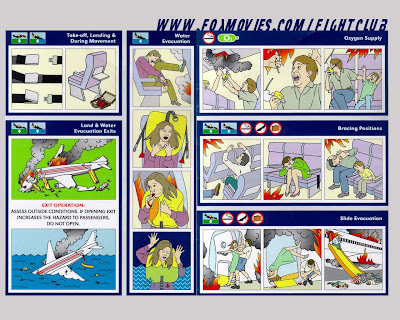The loneliness of the business traveller

Am on the road again. This time in Kiev, city of green avenues and golden domes. I'm here writing a business supplement on Ukraine - my other job, besides writing about psychology etc, is writing about emerging markets, particularly in the former Soviet Union.
Going on a business trip brings home one of the paradoxes of globalization and free market liberalism. On the one hand, it creates a global society that is more and more open, in which you meet more and more people and societies are ever more inter-connected. On the other hand, we are ever more alone and disconnected.
Businessmen are the blood cells of globalization. They travel from country to country, in an endless round of meetings, linking markets together. I remember the eastern Europe advertizing salesman at Euromoney, a magazine I used to work for: he must have been on the road 75% of his life. He lived out of a suitcase. Endless meetings. He knew every senior banker in eastern Europe - in Kiev, Moscow, Budapest, Belgrade. He was a human Rolodex of contacts.
This kind of life takes a ridiculous amount of energy. Believe me - after one day on the road, with say five meetings, I am exhausted. And he does this most days, and has perhaps nine or ten meetings in a day. He once told me: 'You know what the secret is to living on the road? Handwash. On a normal day, I shake 10-20 hands. When it's a big conference or business summit, I must shake 100 people's hands in a day. That's alot of germs and viruses. So after every meeting I wash my hands with handwash.'
People like this guy are the drivers of globalization - meeting people, linking markets, networking, connecting, schmoozing, pressing the flesh.
And yet the life they lead is curiously lonely and isolated. They are on the road most of their lives, in hotels designed to be homogeneous and standardized. They live in rooms that are cleaned by strangers. They are cooked for by strangers. They are driven around by strangers. At the end of the day, they collapse into the hotel bar and drink alone. They sleep alone. Occasionally, for comfort and a feeling of human touch, perhaps they get a massage in the hotel spa, or go to a strip club to pay another stranger to service them.
They live their life among strangers, endlessly networking, but the level of talk is always impersonal - global markets, politics, perhaps some 'personal' chit-chat about sports results or holiday destinations. Because they are always among strangers, their personal lives, their personal idiosyncrasies, feelings and predilections are locked away, like secret files in a corporate safe, while the persona they present to the world is bland and acceptable, like a corporate logo.
The lonely, atomized business traveller is a snap-shot of our society - at once more open and connected, and more isolated and closed. Our infantile consumer needs are pampered and indulged by our corporate lifestyle, while our deeper needs - close human relations, family, community, spiritual meaning - are sacrificed.
We know more and more people, less and less well. We are brought ever-closer, and driven ever further apart. This is the paradox of globalization.
